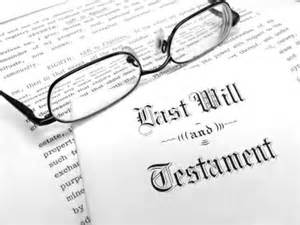 Your assets and your legacy may not be what you had wanted. Your loved ones won’t be able to do much about it. That’s probably not how you want to be remembered.
Your assets and your legacy may not be what you had wanted. Your loved ones won’t be able to do much about it. That’s probably not how you want to be remembered.
One of many reasons to have a will, is the ability to name the person you want to take care of your assets—your executor—and determine who you want to receive your assets—your heirs. If you don’t have a will, decisions will be made on your behalf, and they may not be the decisions you would have wanted.
It’s terribly important to have a will even when a person’s estate isn’t that big. This is because it minimizes the risk of disputes arising. The Buffalo Law Journal reports in its recent article, “Dying without a will in place is a gamble,” that when someone older than 18 passes away without a will, their possessions are considered intestate and are disbursed, pursuant to that state’s intestacy laws.
For example, in New York, a living spouse would have first rights. If there’s a living spouse and children, the spouse gets the first $50,000 plus 50% of the balance of the estate. The children receive the remainder. In other instances where heirs have died or there aren’t any heirs, living parents or siblings would be the first heirs.
If a person doesn’t have any next of kin or no relatives can be located, the possessions and finances of an estate pass to the state.
In many instances, people don’t have a will because they mistakenly assume it wasn’t needed or that they would be covered by power of attorney. That’s a big misconception, since a power of attorney becomes void at the time of your death.
Wills can be very exact, and you can detail precisely the assets you want a person to have.
Of course, there are online tools to help draft a will. However, you should play it safe and work with an experienced estate planning attorney. He or she can be certain that everything is proper and legal, especially when it comes to life insurance and retirement savings beneficiaries.
Remember, if your beneficiaries aren’t correctly designated, the funds from the policy or account will typically pass through to the individual’s estate. There are income tax disadvantages, if you allow that to happen.
In that case, the will would govern. The will offers creditor protection and allows funds from accounts to circumvent additional expenses. Creating a will can be a fairly simple process, but it requires your careful attention and the assistance of an experienced estate planning attorney.
Having a complete estate plan, including a will, power of attorney and health care proxy, is important for everyone to have, no matter the size of your estate.
Reference: Buffalo Law Journal (December 3, 2018) “Dying without a will in place is a gamble”
